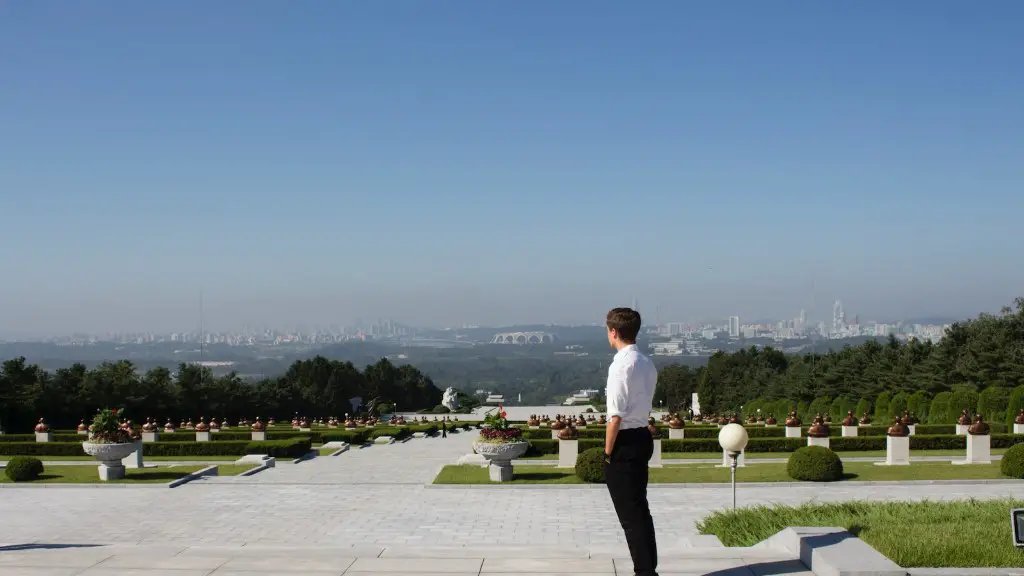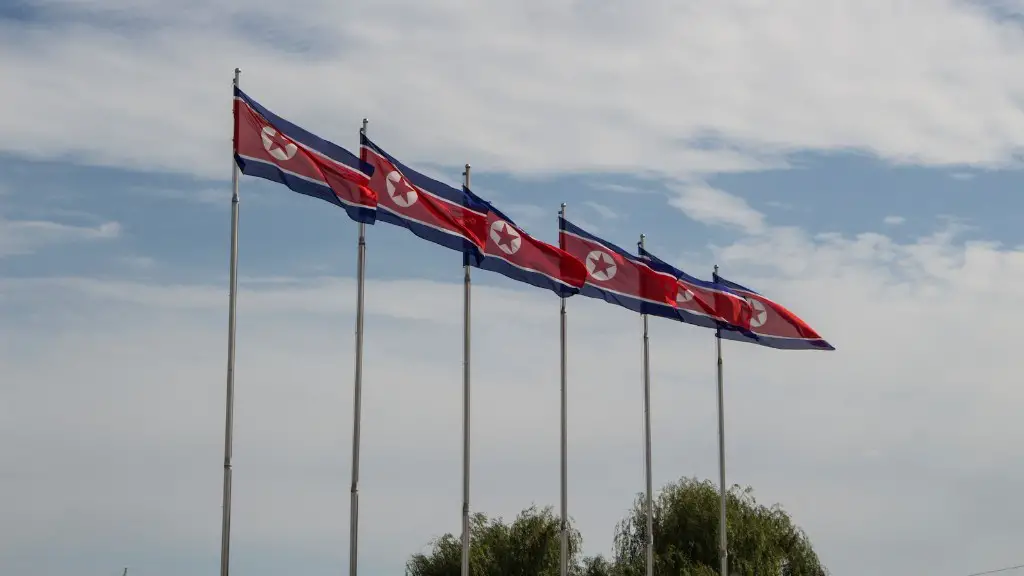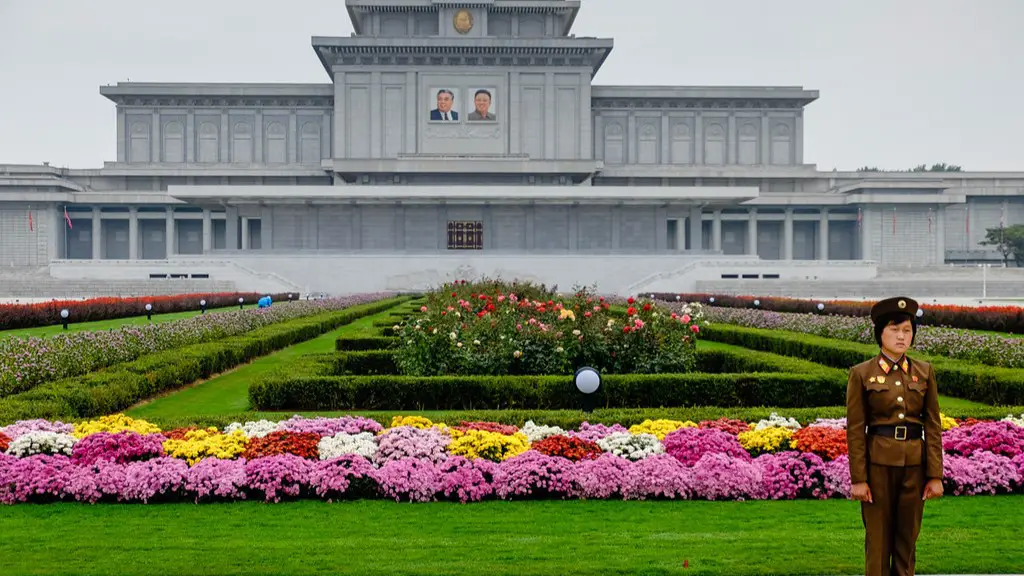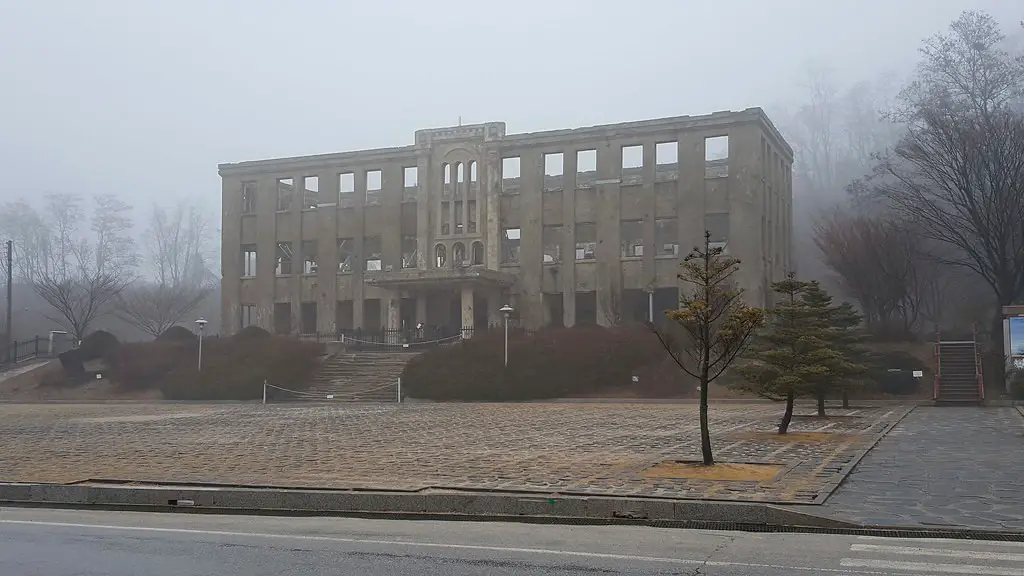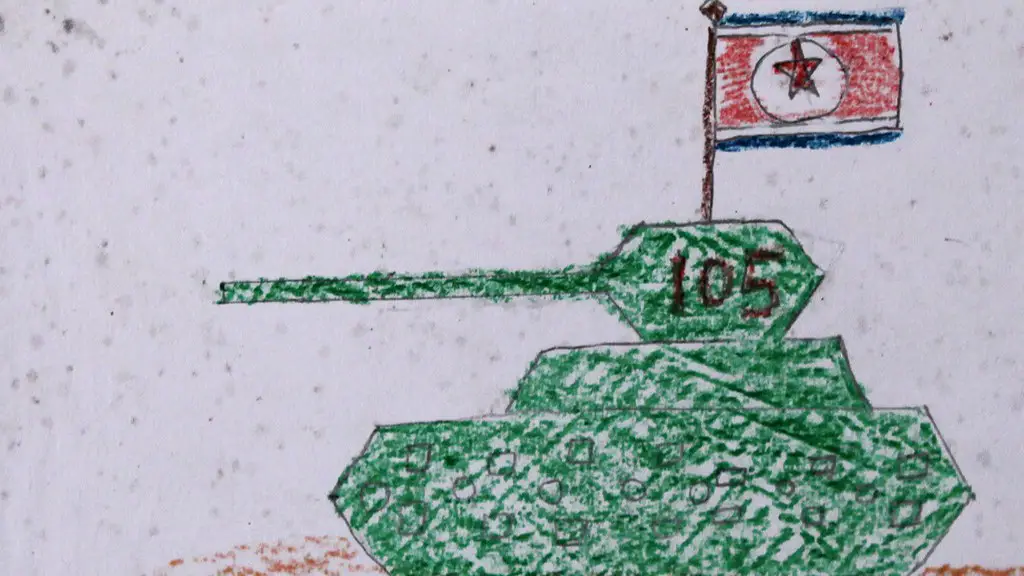As tensions grow between North Korea and other world powers, the possibility of conflict is becoming increasingly likely. This article will explore what a war with North Korea would be like, looking at the political realities, economic implications, and the human cost of this type of conflict.
Politically, a war between North Korea and the rest of the world would likely be incredibly damaging to international relations. North Korea has powerful allies in China and Russia, both of whom have the ability to retaliate against any action the United States or other world powers might take. North Korea is also a nuclear power, with an estimated arsenal of up to 60 nuclear weapons. It is thought that any pre-emptive strikes could result in a devastating nuclear war, with catastrophic consequences for the entire world.
Economically, a war with North Korea would also have strong implications. According to World Bank calculations, North Korea has a GDP PPP of around $40 billion. A war could further destabilise this fragile economy and make it difficult for the country to recover. In addition, the war could have a significant impact on the global economy, with the potential for huge disruption to trade, investment and other economic activities in affected countries.
The human cost of a war with North Korea would be devastating. North Korea has an estimated population of 25 million, most of whom will be affected by any conflict. There is a risk of a large-scale refugee crisis, with millions of people trying to flee the country. There would also be huge disruption to essential services, such as food and water supply, healthcare, and education. This would have a particularly damaging effect on North Korea’s already poverty-stricken population.
In addition to its political, economic, and human cost, a war with North Korea would also have a considerable environmental impact. North Korea is already suffering from severe deforestation and soil erosion, caused in part by intense logging and agricultural activities. A war could make this situation much worse, with the potential for further damage to the country’s forests and soil.
Finally, a war with North Korea could also have significant implications for global security. It is likely that a conflict would destabilise the region and put other countries at risk of attack. This could lead to further conflict and create a dangerous situation in which global peace and stability are threatened.
Security of Neighbouring Countries
A war with North Korea would fundamentally change the security landscape of East Asia. Many countries in the region are deeply concerned about North Korea’s nuclear capabilities, and a conflict could spark regional tensions as these countries look to protect themselves from potential North Korean aggression. Japan, in particular, would be highly vulnerable to any threat from North Korea, and could suffer significant losses in the event of war.
South Korea, which is geographically closest to North Korea, is also likely to be greatly affected. South Korea has a significant military presence along the de-militarised zone and would likely be on the frontlines of any conflict. In addition, South Korea’s economy and society could suffer greatly, as the two countries have significant economic ties.
The US also has a key role to play in the security of the region, as it has thousands of troops in South Korea and a range of other military assets in the region. The US has also recently deployed a missile defence system in South Korea, which could come into play if a conflict were to break out.
Finally, the UN has an important role to play in any potential conflict. The UN Security Council could impose sanctions or other restrictive measures on North Korea, or authorise military action to protect its member states. This could serve as a deterrent against further North Korean aggression and help to maintain peace and stability in the region.
Implications of A Possible Conflict
If North Korea and its allies were to enter into a conflict with the United States and its allies, the implications would be global. The conflict could lead to a large-scale disruption of international trade and investment, as countries could look to protect their assets and markets. There could also be a significant impact on global energy markets, as oil prices could fluctuate significantly due to the conflict.
The war could also increase the risk of nuclear proliferation, as other states may look to increase their nuclear arsenals in order to protect themselves. This could result in a deadly cycle of nuclear escalation, which could have catastrophic consequences. In addition, the war could increase the risk of cyberwarfare, as rival states may look to use cyber-attacks to gain an advantage over each other.
Finally, there would be a great risk of civilian casualties in any war that would break out. With North Korea’s population of 25 million, a conflict could lead to thousands of innocent lives being lost. This would be devastating for the North Korean population, and could have a lasting impact on the country’s society, economy, and political future.
International Sanctions and the Impact on North Korea
International sanctions are one of the most effective tools that countries have to influence the behaviour of North Korea. Already, the US and its allies have implemented a range of economic and political sanctions targeting North Korea, in a bid to halt its nuclear weapons development programme. These sanctions have had a significant impact on the country’s economy, and have increased the pressure on the North Korean leadership.
However, it is important to note that sanctions alone are not enough to stop North Korea from developing nuclear weapons. Sanctions can only work if they are coupled with other measures, such as negotiations and diplomacy. It is also important to remember that if sanctions become too severe, they could push North Korea into a corner and make it more likely to take aggressive action.
Finally, it is important to keep in mind that any sanctions imposed on North Korea are likely to have a considerable impact on the country’s population. North Korea’s economy is already struggling, and sanctions could make the situation much worse, with devastating effects on the lives of ordinary North Koreans.
Options To Resolve the Conflict
If war with North Korea were to break out, there would be a range of options available to resolve the conflict. Firstly, the UN Security Council could impose a cease-fire and call for negotiations between all parties. This could help to de-escalate the conflict and lead to a peaceful resolution.
Additionally, countries in the region could take steps to increase co-operation, in order to build trust and reduce the risk of further conflict. For example, South Korea could take steps to reduce its military presence near the DMZ and encourage dialogue with North Korea. This could help to de-escalate tensions and create a situation in which peaceful negotiations are possible.
In addition, countries outside of the region could also play a role in resolving the conflict. For example, China and Russia could use their influence to persuade North Korea to take a more diplomatic approach, or could use their economic leverage to pressure the North Korean leadership to end their nuclear programme.
Finally, the US could work with its allies to devise a comprehensive plan that would bring an end to the conflict. This could include economic incentives and security guarantees to deter North Korea from further aggression, as well as diplomatic pressure to encourage the North Korean leadership to take steps towards greater stability.
